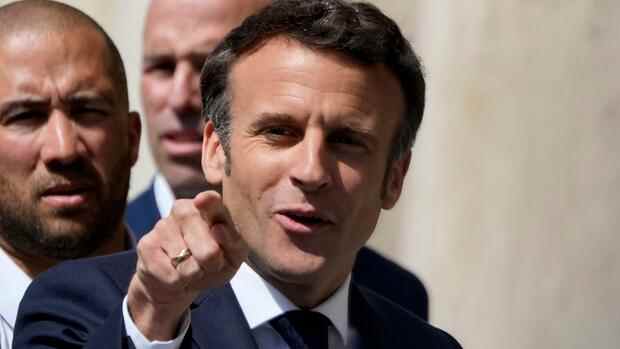Before the election, President Emmanuel Macron had already passed programs worth billions to curb energy prices and boost purchasing power.
(Photo: AP)
For Barry Eichengreen, an economic historian at the University of California, Berkeley, political polarization is one of the greatest risks to public finances. The more the major political camps drift apart, the greater the temptation to benefit their own clientele with state transfers, and the less willing they are to make compromises to reduce spending.
With a view to the French presidential election, this is bad news not only for France itself, but also for the EU and Germany. About 50 percent of the French voted for radicals from the right and left in the first ballot. This confirmed the division of the country into globalized metropolises such as Bordeaux and Paris and the rural regions that were left behind.
Marine Le Pen’s campaign focuses on the latter. There, citizens are under additional pressure due to the increase in inflation. Before the election, President Emmanuel Macron had already passed programs worth billions to curb energy prices and boost purchasing power.
Le Pen promises, among other things, income tax exemption for under-30s, a reduction in VAT on energy and low-interest loans of up to 100,000 euros for young couples that do not have to be repaid if they have three or more children.
Top jobs of the day
Find the best jobs now and
be notified by email.
The Institut Montaigne think tank estimates that its program would mean annual additional spending of over 100 billion euros. This would probably be financed in part through higher taxes, but mostly on credit.
State finances have been developing critically for some time
In wooing the voters of the radical left candidate Jean-Luc Mélenchon, who was narrowly eliminated, Macron is distancing himself from his previously planned pension reform. France spends around 13.7 percent of gross domestic product (GDP) on pensions, almost twice the OECD average. The public sector doesn’t have to worry either. In relative terms, 25 percent more people work for the state in France than in Germany. The proportion has increased under Macron.
Daniel Stelter is the founder of the discussion forum beyond the obvious, which specializes in strategy and macroeconomics, as well as a management consultant and author. Every Sunday his podcast goes online at www.think-bto.com.
(Photo: Robert Recker/ Berlin)
Public finances have been out of control for years. In 2021, the deficit was 6.5 percent of GDP and the public debt is approaching 120 percent. Debt grows whether the economy is doing well or not. The EU Commission stands by and does nothing, “because it is France” (Jean-Claude Juncker).
No wonder Paris is stubbornly pushing for a debt and transfer union. Politically, the burden on the taxpayers of other countries – above all Germany – is far more attractive than having to expect cuts from one’s own population. Germany should oppose this. Charles de Gaulle’s quip, “Nations have no friends, nations have interests,” also applies to us.
More: Macron vs. Le Pen – It is these groups of voters that matter in the runoff.
